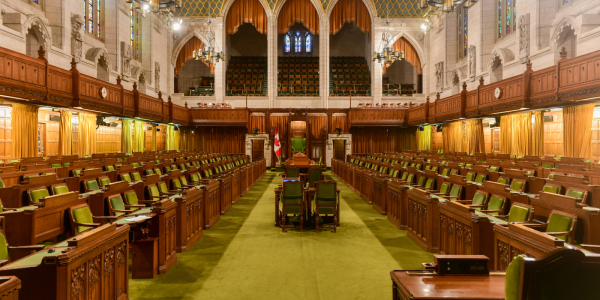Autumn Statement 2023 – Class 2 NIC change is a simplification and saving for some, but not those on the lowest incomes
In yesterday’s Autumn Statement, Chancellor Jeremy Hunt announced that Class 2 National Insurance Contributions (NIC) – normally paid by self-employed individuals – would be ‘abolished’ from next April.1 However the Low Incomes Tax Reform Group (LITRG) notes that this change does not benefit the lowest-income self-employed.

The changes announced by the Government produce different results depending on which ‘income band’ you are in:
- Those making profits over £12,570 will be treated as still having a qualifying year2 for contributory benefits, but without paying Class 2 NIC – so they save £192.40 in 2024/25;3
- Those making profits between £6,725 and £12,570 will not make such a saving, as they are already being treated as paying Class 2 NIC without actually having to pay it;
- Those with profits under £6,725 will still have to pay Class 2 NIC voluntarily to keep up their contributions record for benefits purposes.4
Antonia Stokes, LITRG Technical Officer, said:
“The Chancellor has described the abolition of Class 2 NIC as a simplification measure for the self-employed. However, it is not an immediate abolition, because Class 2 will continue to exist for those who wish to make voluntary contributions, at least in the short term.5 The self-employed with the lowest profits (under £6,725) will not therefore see any simplification from 6 April 2024.
“That said, we can see that a full and immediate abolition of Class 2 could have meant that those earning small amounts of self-employed profits who make voluntary Class 2 contributions might alternatively have had to pay more expensive Class 3 NIC to preserve their entitlement to state benefits, including the state pension.6 So preserving Class 2 as a voluntary system, subject to consultation on wider reform, is a sensible interim step.
“The Autumn Statement document also suggests that ‘This is a progressive reform, giving lower-paid self-employed individuals a significant tax cut.’7 However, those with the lowest profits (less than £12,570) will not see any saving – the status quo is unchanged for them.
“There will be further changes to the remaining Class 2 NIC system in future,8 and we hope that any changes will be consulted on fully to ensure that the lowest income self-employed have a means of keeping their contribution record intact.”
Notes for editors
- Autumn Statement 2023, paragraph 3.10
- A qualifying year is any year where you have paid, or have been treated as having paid, sufficient NIC such that you qualify for access to contributory state benefits, including state pension in later life.
- LITRG understands that, for 2024/25, the rate of Class 2 NIC for these taxpayers will be £nil (see the Overview Of Tax Legislation of Rates for the Autumn Statement 2023), so there will be no cost for these taxpayers to achieve a qualifying year for contributory benefits purposes. The £192.40 notional saving is based on the Class 2 rate rising from £3.45 in 2023/24 to £3.70 in 2024 to 2025. Incidentally, it was also announced (Autumn Statement 2023, paragraph 3.10, final bullet) that the scheduled increase in Class 2 NIC rates to £3.70 would be scrapped, so the rate payable by voluntary contributors from April 2024 will remain at £3.45 per week.
- Voluntary Class 2 NICs are normally an option for self-employed people earning below the small profits limit of £6,725, or certain other people who are living and working abroad.
- Self-employed people earning above the relevant thresholds currently pay both Class 2 NIC and Class 4 NIC. Class 2 is a weekly fixed amount of £3.45 for 2023/24 and, as announced, will remain at this level for 2024/25. By contrast, Class 4 is payable as a percentage of taxable profits, in a similar way to income tax. The main rate of Class 4 NIC was also reduced in the Autumn Statement, see paragraph 3.9.
- Class 3 NICs are voluntary contributions of £17.45 per week (for 2023/24 and 2024/25), and may be paid by those who are not eligible to voluntarily pay Class 2 – for instance, because they are not trading. Information about voluntary contributions is available on GOV.UK.
- Autumn Statement 2023, paragraph 3.11.
- Autumn Statement 2023, paragraph 3.11: “The government will set out next steps on Class 2 reform next year.”
